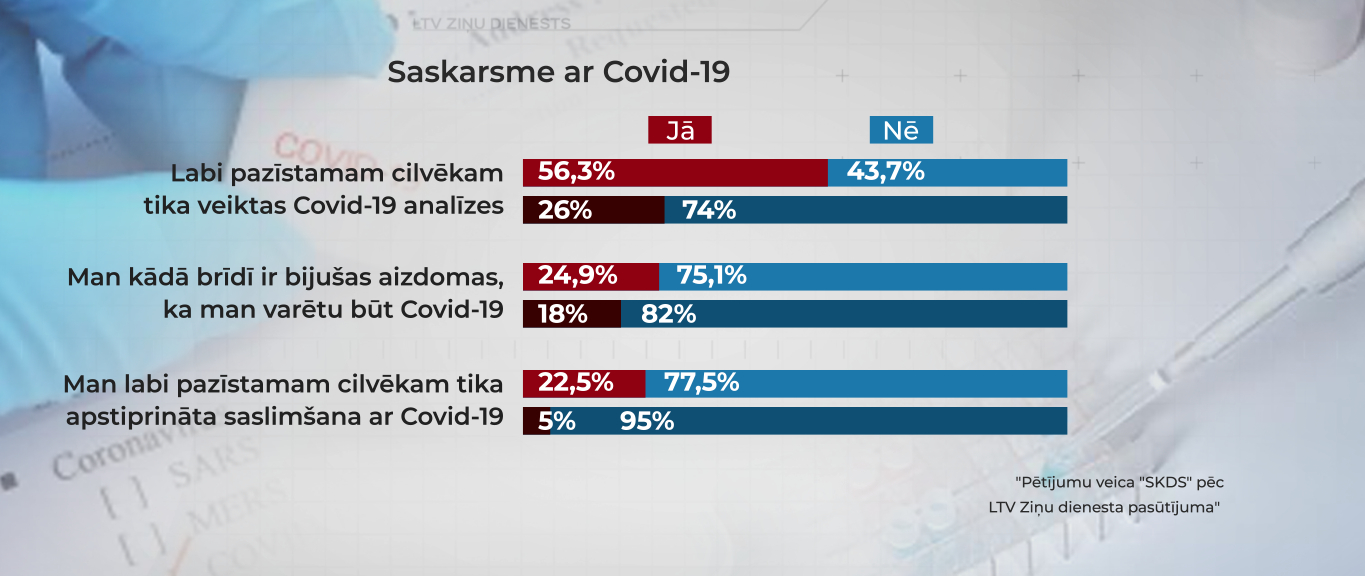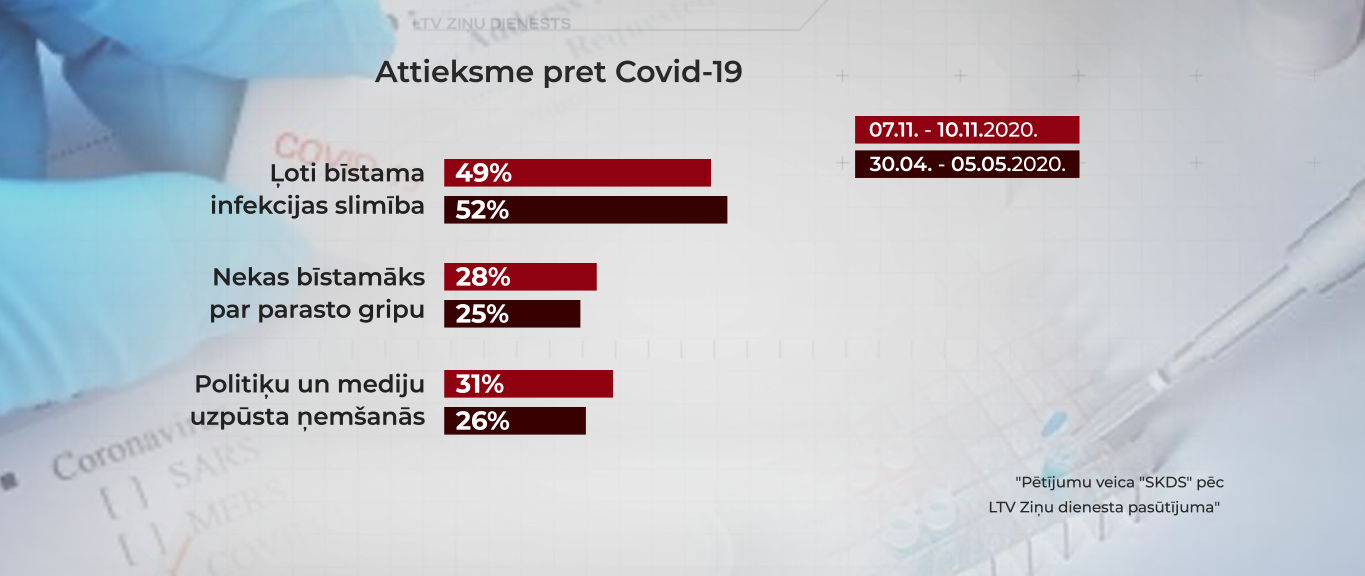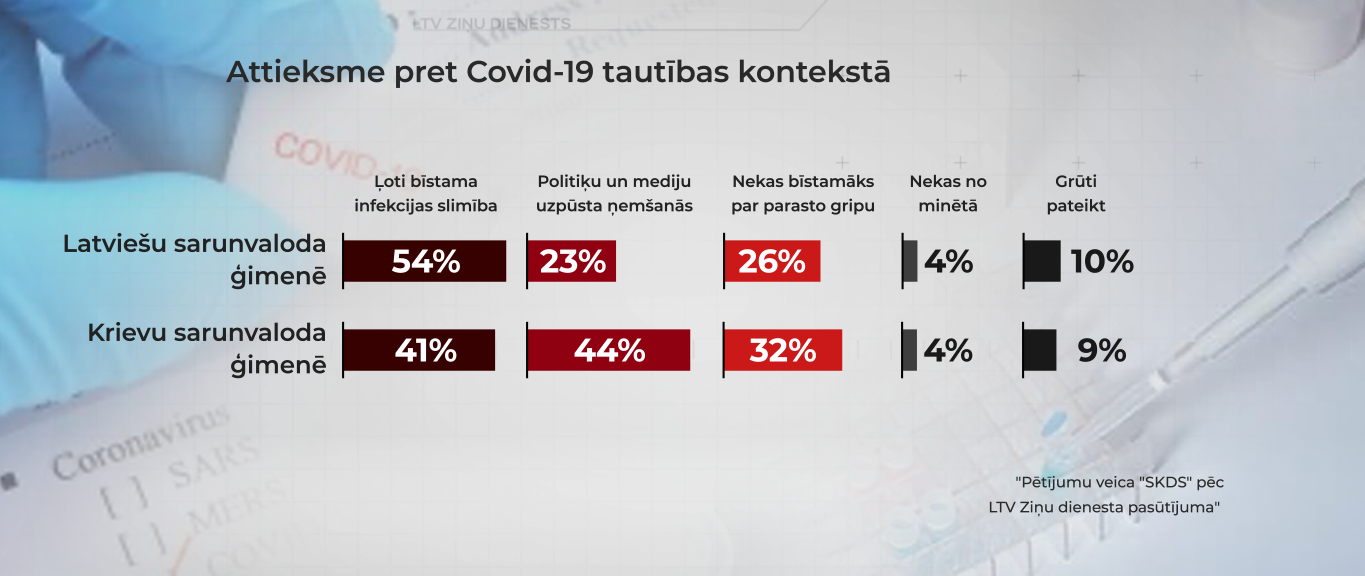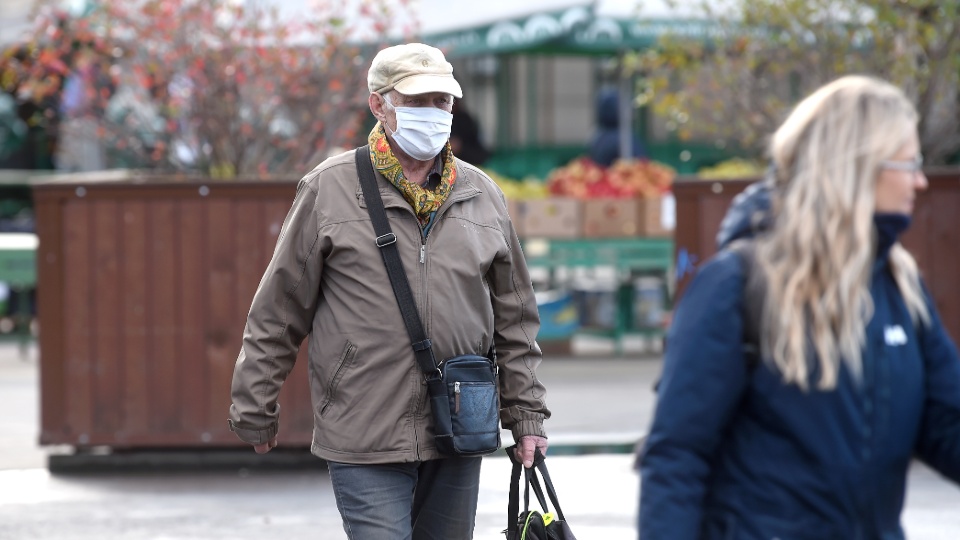The residents of Latvia are increasingly confronted with COVID-19 in their daily lives. More and more people are known to be ill in family and acquaintance circles. The number of people who have had to go in self-isolation is also increasing. But does that mean that people perceive the new coronavirus as more dangerous than just another serious infectious disease? On the contrary, according to a survey conducted by the research center SKDS on the order of the LTV News Service. Increasingly, COVID-19 is referred to as simply flu, or even the blown-up sensation of politicians and media.
COVID-19 has been an integral part of our daily lives for more than half a year, and contact with it is only getting closer.
In an SKDS survey conducted in November, more than a fifth of the 1000 respondents, or 22.5%, knew a COVID-19 infected person among their closest acquaintances. Nearly 25% thought they had become infected themselves. More than half, or 56%, know someone who has done a COVID-19 test.

In a similar survey conducted in April this year, all of those positions were lower. For example, only 5% of respondents were personally acquainted with a COVID-19 patient.
But – what has happened to COVID-19 attitudes these months? The latest survey shows:
- 49% of respondents call it a very dangerous infectious disease.
- 28% think that, in principle, it is nothing more serious than “regular flu.”
- 31% think that COVID-19 is a blown-up politician and media circus, not a real problem.
Respondents were able to mark more than one response, so the total percentage exceeds 100%.
Comparing the data of the new survey with spring responses, it appears that today people are less likely to agree with the view that “it is a very dangerous infectious disease”, but have more frequently expressed views that COVID-19 is a “blown-up media circus” or, basically, the same flu.

We face the disease more frequently, more and more personally, but at the same time we are becoming more careless. Why is it so?
"The first thing, I think, relates to the big informative background.
At the beginning, there was little information in the public. Since then, there has been a great deal more production of nonsense and misogyny.
A second important factor relates to personal experience. Personal experience is very, very individual. In other words, there are people who have faced severe cases, but far more people who face very mild cases. This positive experience makes it easier to look at COVID-19 hazards in a relaxed way," said the director of SKDS, sociologist Arnis Kaktiņš.
Associate professor of Riga Stradins University, philosopher Vents Sīlis, said: “I don't think that among those who deny COVID-19, everyone thinks it doesn't exist. There are many attempts here to manipulate views and information on behalf of their own merits. All kinds of freaks and supporters of conspiracy theories are experiencing unprecedented popularity at this time as people seek simple answers to really complex, fundamental questions. The consequences of complexity are that people decide on simple, even overly primitive solutions.”
In both the spring and autumn surveys, people's attitudes to COVID-19 correlate with their nationality and the language used in their family.
Those surveyed, whose main language in the family is Latvian, more often agreed that COVID-19 “is a very dangerous infection”, while respondents whose main speaking language in the family is Russian, more often than on average, supported the view that COVID-19 is “political and media circus.”

Such differences of opinion are largely attributable to the divided information room. The study also contains interesting data on which sources of information and what opinion leaders the public trusts. LTV will feature this in greater detail soon.
Meanwhile, you can look at LSM's other story summing up a study on Latvian society's attitude towards news related to COVID-19.





























